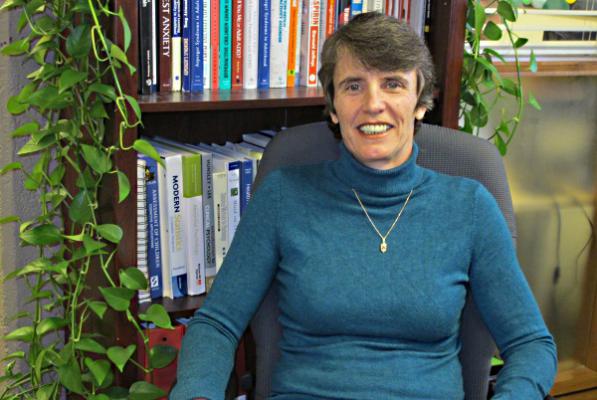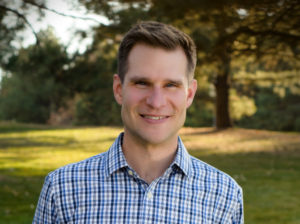Podcast: Play in new window | Download | Embed
Would you rather read the transcript? Click here.
“We should not pathologize ‘normal’.”
Do you include a PVT as part of your standard ADHD battery? If not, I bet you will after this episode! Drs. Julie Suhr and Allyson Harrison are here today talking through their research and experience with validity issues in ADHD assessment. If you’ve ever found yourself wondering if that young adult client REALLY has ADHD or if you should be considering other factors or diagnoses, this is the episode for you. These are some of the topics we cover:
- The most common diagnostic criteria that we ignore when diagnosing ADHD
- An ideal ADHD battery
- The role of non-diagnostic environmental factors in functioning
- Sensitivity, specificity, and predictive power in our assessment instruments
Cool Things Mentioned
- Test of Memory Malingering
- Talking to Strangers by Malcolm Gladwell
- National College Health Survey
- Brooks, Bender, and Iverson normative database on WAIS/WMS
- MMPI-3
- Personality Assessment Inventory (PAI)
- WAIS Functional Impairment Rating Scale
- Assessment of Feigned Cognitive Impairment, Second Edition
- The Testing Psychologist Advanced Practice mastermind
Featured Resource
I am honored to partner with PAR for 2021 to bring you featured items from their catalog! Listen to each episode for specific product recommendations and links. Learn more at www.parinc.com.
The Testing Psychologist podcast is approved for CEU’s!
I’ve partnered with At Health to offer CE credits for podcast episodes! Visit this link to access current and past episodes available for CE credit. You can use code “TTP10” for a discount on ALL the course credits you purchase from At Health!
Dr. Allyson Harrison

Allyson G. Harrison is a clinical neuropsychologist. She is currently the clinical director of the Regional Assessment & Resource Center at Queen’s University, Canada, a government-funded center mandated to support postsecondary students through the provision of assessments. She also holds an appointment as an associate professor in the Department of Clinical Psychology at Queen’s University. Her research is dedicated to issues of differential diagnosis in LD and ADHD.
Get in touch: harrisna@queensu.ca
Dr. Julie Suhr

Julie Suhr is Professor and Director of Clinical Training of the doctoral program in clinical psychology at Ohio University in Athens, Ohio, USA. She is a neuropsychologist who conducts research on psychological and neuropsychological assessment of many conditions, including adult ADHD. She is a fellow of the National Academy of Neuropsychology and of the Society for Clinical Neuropsychology and is co-Editor in Chief of Journal of Clinical Neuropsychology and Incoming Editor for the APA journal Psychological Assessment.
Get in touch:
About Dr. Jeremy Sharp

I’m a licensed psychologist and Clinical Director at the Colorado Center for Assessment & Counseling, a private practice that I founded in 2009 and have grown to over 20 clinicians. I earned my undergraduate degree in Experimental Psychology from the University of South Carolina before getting my Master’s and PhD in Counseling Psychology from Colorado State University. These days, I specialize in psychological and neuropsychological evaluation with kids and adolescents.
As the host of the Testing Psychologist Podcast, I provide private practice consulting for psychologists and other mental health professionals who want to start or grow psychological testing services in their practices. I live in Fort Collins, Colorado with my wife (also a therapist) and two young kids.
Ready to grow your testing services? Click below to schedule a complimentary 30-minute pre-consulting call!


Comments 2
Dr. Harrison and Suhr presented themselves as frustrated and jaded with a negative outlook on the populations they are supposed to be helping. I sat around for over 30 minutes listening to this episode waiting for them to get to what they were supposed to be discussing, only to hear them speak about clients in a way I’d be embarrassed to have said clients overhear. Rigor is important, but they can save their vitriol and deal with it elsewhere. I don’t need that and neither does anyone else listening.
As a person diagnosed with ADHD in adulthood who performed just fine in school (if you listen to this interview, you’d think we do not exist!), I found this interview extremely off-putting. I’m also studying to become a mental health professional, and found that so much of this interview contained views that could be harmful to clients seeking ADHD diagnoses. Both doctors displayed an air of superiority and condescension and seem to go into ADHD evaluations assuming that every patient is either malingering or exaggerating their symptoms to get extra time on schoolwork or obtain stimulant medications.
Not once was there a mention of the various presentations of ADHD and the fact that many people, particularly women who often display inattentive behaviors, are often overlooked in childhood and tend to perform decently well in school without clear behavioral challenges–therefore, they may seek diagnoses later in life than do boys and men. Instead, they implied that if you were not diagnosed under the age of 12, or have “normal” school records, then you must not have ADHD. This could potentially alienate an entire population of folks with ADHD who may not meet the stereotypical profile of the disruptive, hyperactive little boy who is identified early in life due to the behavioral and academic disturbances these symptoms can cause.
They also discussed differential diagnoses, which I appreciated, as I think they are not discussed enough as alternative explanations to ADHD-like symptoms. However, both doctors acted as if this were a binary: you either have anxiety or depression, or you have ADHD. Not once was there a mention of having BOTH, yet SO MANY of us have ADHD and another mental health diagnosis (anxiety, depression, OCD, etc.), which could both mask and complicate the presentation of symptoms! I would be extremely leery of seeing either of these clinicians for an evaluation as they appear to hold many outdated and non-nuanced views on ADHD, and appear jaded toward clients whom they assume must be feigning or over-reporting their own experiences. It was disappointing that Dr. Sharp did not push back or ask more probing questions about any of these topics, and rather just validated their snarky comments about clients and moved onto the next question.
Throughout the entire interview, all I could think about was how lucky I was to have never encountered either of these clinicians during the process of obtaining my diagnosis. I can only imagine how their clients must feel: dismissed, invalidated, and probably told either directly or indirectly that their experiences were wrong. I even felt a tone of contempt toward the clients they referenced during the interview. Honestly, I was shocked by the tone that they used in their description of the interactions they had with former clients, and wonder if those clients had ever listened to this interview–I truly hope not for the clients’ sake.